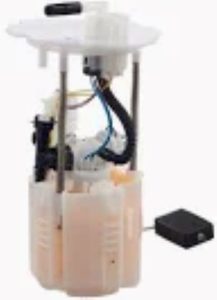A fuel pump mainly contributes to horsepower by supplying the engine with just the right flow and pressure of fuel for proper combustion, especially in high revolution ranges. In high-performance vehicles, fuel pumps supply fuel at flow rates often in excess of 300 liters per hour, depending on the demands of the particular engine's horsepower. If the fuel pump cannot handle the constant pressure needed during operation, typically between 40 and 80 PSI for high-performance engines, it can cause the engine to run lean, which in turn is a cause for inadequate combustion and loss of horsepower.
Large capacity, or high flow fuel pumps, allow for higher horsepower to be achieved by an engine, which has a constant supply of the fuel. In forced induction engines, such as those with turbochargers or superchargers, fuel demands can be up to 30% or more over naturally aspirated engines. In such engines, there is prepared a fuel pump that can handle higher flow rates to match this elevated intake of air with more fuel for an optimal mixture, ensuring maximum combustion and horsepower.

If the fuel pump performs poorly, it could drop the horsepower significantly. If a pump operates below its required efficiency because of age, wear, or clogging, it may deliver only 80% of its intended capacity. This forces the working of the engine harder, which again limits the power and reduces overall efficiency. In fact, experts claim that to sustain horsepower, fuel pressure needs to always come at the top, while irregular fuel delivery results in altered combustion quality.
Where high-performance tuning is required, drivers and mechanics often upgrade to higher capacity fuel pumps, such as Walbro and Bosch aftermarket pumps, capable of sustaining very high flow rates without loss of pressure to support 500+ horsepower tuned engines. Were it not for these kinds of high-capacity fuel pumps, there would be fuel starvation in the engines during periods of high loading, reducing horsepower and hindering acceleration.
A healthy Fuel Pump will make sure that fuel pressure can always match the demands of the engine for maximum horsepower capability through keeping proper air-fuel ratios. Proper air-fuel mixture directly influences the quality of the combustion process, enabling the engine to provide power continuously in whatever driving condition it may be subjected to.
